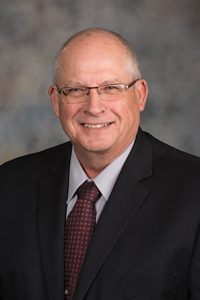Study of rural broadband availability advanced
A proposal to study expanding high-speed internet access to rural areas of the state was advanced from general file March 27.

Henderson Sen. Curt Friesen introduced LB994, which would create the Rural Broadband Study Task Force to assist in developing enhanced broadband telecommunications service to unserved and underserved areas in rural Nebraska.
He said broadband internet service is needed to support business, agriculture, education and health care needs in the state’s rural areas.
“It is vital to Nebraska’s future well-being that our rural residents have the same ability to participate in the information superhighway as our urban residents,” Friesen said.
A Transportation and Telecommunications Committee amendment, adopted 30-0, replaced the bill. As amended, the task force would be renamed the Rural Broadband Task Force.
Membership on the task force would include a member of the Nebraska Public Service Commission, the director of the state Department of Economic Development and the director of the state Department of Agriculture. Additional members would be appointed by the governor, including representatives from the state’s agribusiness, business, telecommunications, public power and educational communities.
The Transportation and Telecommunications Committee chairperson and another member of the Legislature appointed by the Executive Board would serve as nonvoting, ex officio members. The chairperson of the Nebraska Information Technology Commission would chair the task force.
The task force would study issues relating to the availability, adoption and affordability of broadband services in rural areas of the state. Specifically, the task force would:
• determine how the average advertised subscription rates and download and upload speeds compare with neighboring states;
• determine whether the administration of the Nebraska Telecommunications Universal Service Fund is effective in bringing comparable and affordable broadband service to rural residents;
• review the feasibility of alternative technologies and providers in expediting access to faster and more reliable broadband service in rural areas;
• study alternatives for deployment to unserved or underserved areas such as reverse auction programs, public-private partnerships and funding for competitive deployment;
• recommend state policies to effectively leverage state Universal Service Fund dollars with federal support; and
• recommend to the governor and Legislature the most effective and efficient ways to use federal broadband rural infrastructure funds.
The Nebraska Information Technology Commission would host a Rural Broadband Task Force Fund to pay for the study, which initially would be funded by a $50,000 transfer from the Nebraska Internet Enhancement Fund.
A final report of the task force’s findings would be delivered to the Legislature’s Executive Board no later than Dec. 1, 2019.
LB994 also would authorize the Nebraska Public Service Commission to withhold funding from companies that have not provided adequate broadband internet to unserved or underserved areas. The withheld funds could be used to institute a reverse auction program that would award funding to broadband internet service providers to support high-speed internet infrastructure deployment projects in these areas.
The amended bill clarified that such funding must be used only in the exchange area where it was originally granted.
The commission would establish a registry of locations within the state that receive complaints of a lack of wireless coverage. The annual report would be publicly available and could be used in future funding decisions.
Finally, the amended bill also incorporated provisions of LB966, introduced by Friesen. These would exempt the sale, lease or rental of and the storage, use or consumption of dark fiber from state sales and use taxes.
Fremont Sen. Lynne Walz supported the bill, but expressed concern that the Legislature might not take action based on the study’s findings. She noted that nine task forces, working groups and studies on rural broadband access have been commissioned since 2006.
She said the residents of rural Nebraska cannot wait any longer.
“It’s becoming increasingly clear that affordable and reliable internet access is no longer a luxury, but a necessity,” Walz said. “The world is changing quickly and rural communities will need high-speed internet, not only to stay competitive, but to grow and prosper.”
Following the adoption of a technical amendment, senators voted 29-0 to advance the bill to select file.

